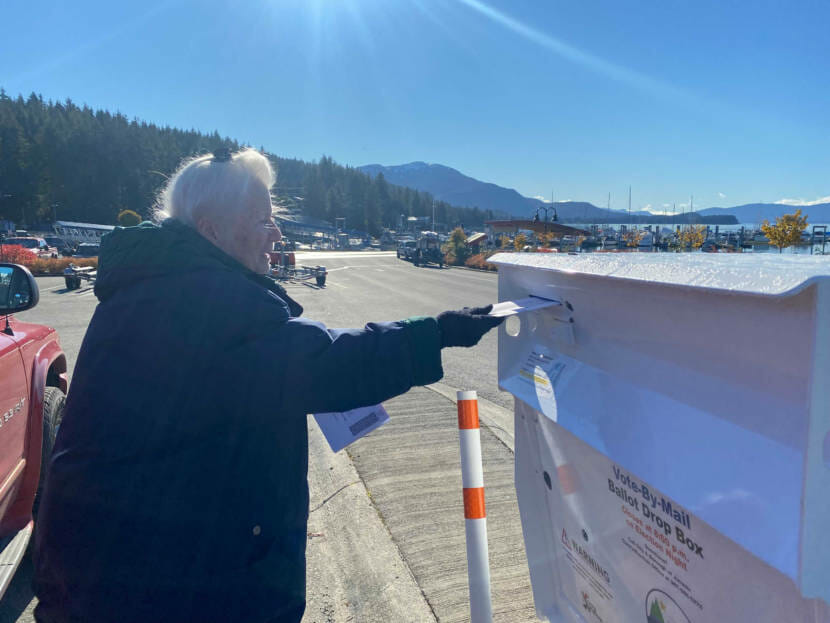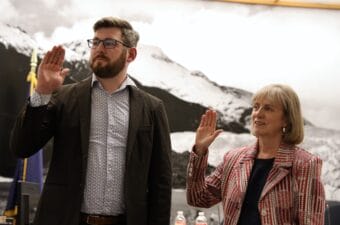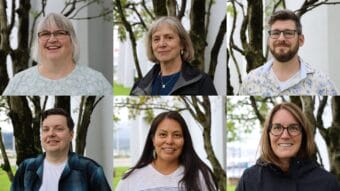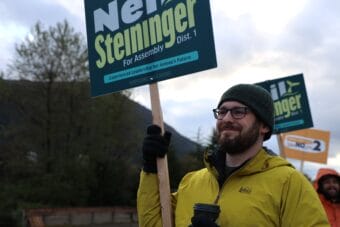
Propositions 2 and 3 ask local voters to let the City and Borough of Juneau pay for projects using two of its reliable tools for raising money: debt financing through the sale of municipal bonds, and the renewal of 1% of the local sales tax rate.
Proposition 2
Proposition 2 asks voters to authorize the city to borrow up to $6.6 million to pay for improvements to city parks and recreation facilities.
The bond financing request is a smaller ask, but for more marginal priorities of the Juneau Assembly. That’s part of why Assembly member Greg Smith supported separating them from the higher priority projects covered in the sales tax question, and the standalone question for a new city hall.
“By putting it as a bond, it does really give everyone a chance to express their opinion on the projects, and should we take out bonds, should we borrow money to develop them?” Smith said. “And then, you know, we will be paying it back with interest. So there’s a property tax impact. It’s not free. … So people have a chance to say, ‘No, we don’t want to do that.’ And that’s totally fair.”
The impact on property taxes will depend on the terms of the bonds, but city officials forecast it at about $43 a year for a $400,000 home, for 15 years.
Most of the money would go toward new turf fields and a track at Adair-Kennedy Memorial Park in the Mendenhall Valley. Some of the money is also earmarked for a new public use cabin and trail maintenance across the city.
Smith said these are good projects for improving activities for kids and the community’s overall quality of life. He said new turf fields in particular would make Juneau a more attractive host community for certain events.
“I think there’s an economic development aspect and that people will want to come and bring and play baseball and softball tournaments here now,” he said. “Whereas, they may not have wanted to as much before when we had lower quality facilities.”
The ballfields at the park right now are dirt. Smith has firsthand experience.
“I remember, you know, playing through standing water and sliding into, you know, mud puddles and stuff,” he said. “So I think it’s just going to improve the safety, improve the quality of play.”
Assembly member Alicia Hughes-Skandijs agreed they’re good projects, but has some reservations about the way the Assembly elevated these lower priority projects.
“I mean, at the end of the day, you always have limited resources,” she said. “We’re in a great position right now — our debt capacity is good. So we have things coming off the books, so it’s not that this is necessarily going to break the bank, but it all adds up.”
She said she’ll probably vote against the parks measure.
“Something like the turf field, you know that will benefit our kids, so I can’t be mad at that,” she said. “But I can still be a grump about the process.”
Proposition 3
Proposition 3 asks voters to renew 1% of the city’s sales tax rate for 5 more years to pay for about $60 million of infrastructure and special projects. It’s a temporary tax, but one that voters have renewed every time it’s come up going back to 1972.
City officials expect it to generate $60 million. The Juneau Assembly crafted the list of projects the money will go toward through a ranking process, with input from city staff and the public.
The biggest pot within that money is earmarked for extending the life of existing public infrastructure: schools, police and fire stations, harbors, parks, pools, libraries, heating and ventilation systems, and street maintenance equipment.
The rest will be set aside for a grab bag of otherwise unrelated improvements and special projects, including:
- redevelopment of Gastineau Avenue, Telephone Hill and a combined CBJ-state of the Alaska parking garage to replace the State Office Building’s parking garage;
- improvements at city harbors;
- development of a multiuse path through Lemon Creek; and
- relocating the Juneau-Douglas City Museum.
It also includes money for Assembly priorities that are not brick-and-mortar infrastructure:
- contributions to the city’s budget reserve;
- support for expanding childcare availability;
- support for affordable housing and ongoing development of Pederson Hill; and
- information technology upgrades.
Short narratives on the individual projects are available in the city’s voter information guide that was recently mailed out.
If this measure fails, the city’s overall 5% sales tax rate will fall to 4% in October 2023.
The deadline to vote is Tuesday, Oct. 4.


